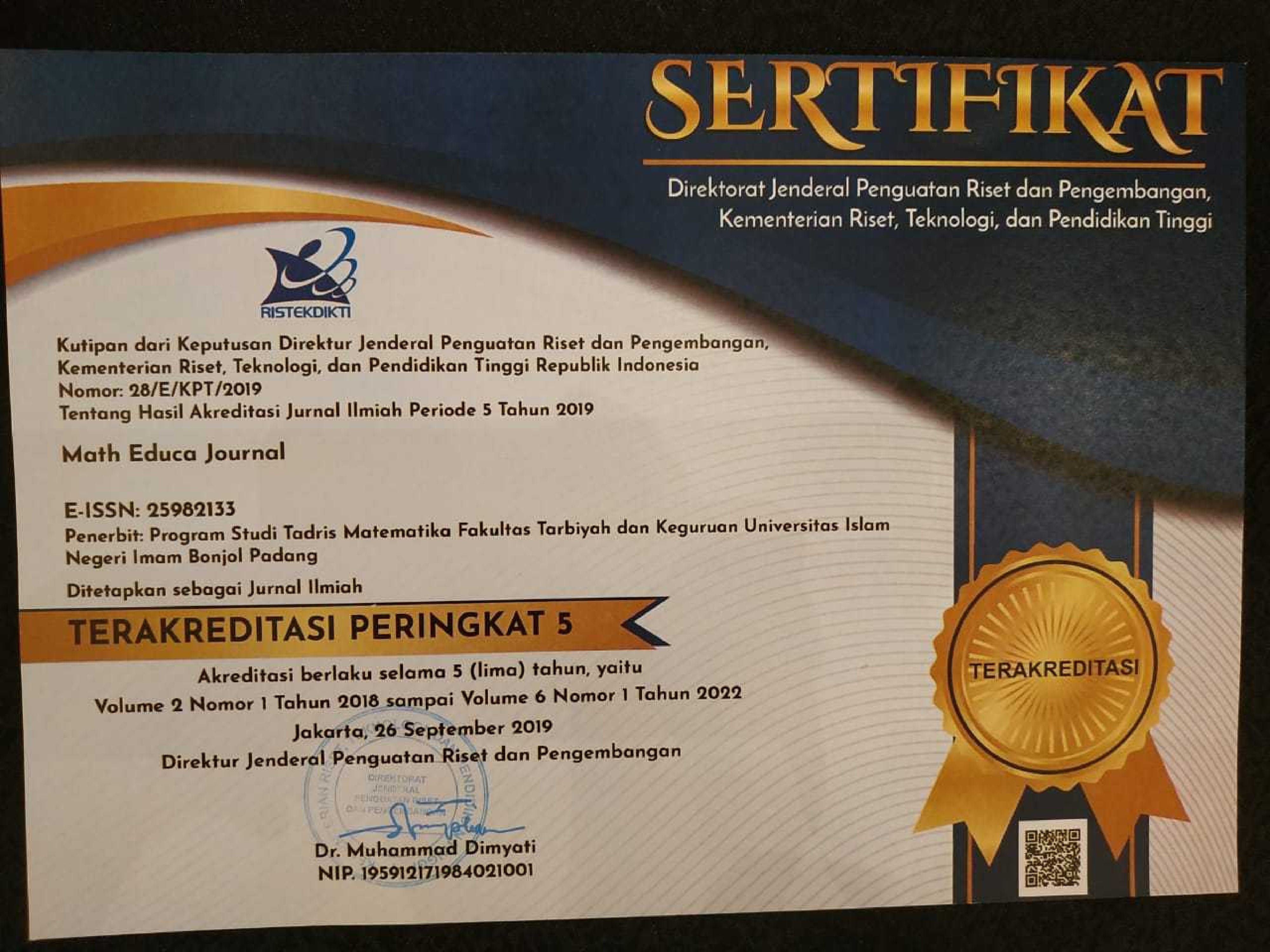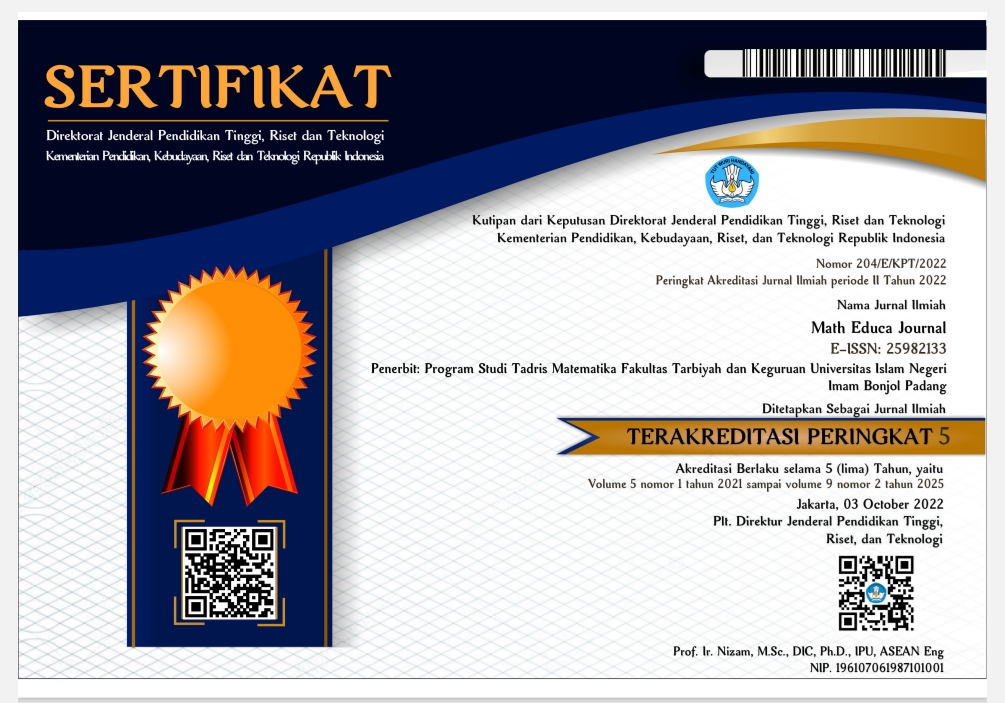VALIDITAS PERANGKAT PEMBELAJARAN E-LEARNING BERBASIS EDMODO PADA MATA KULIAH ALJABAR LINEAR
Abstract
Keywords
Full Text:
PDFReferences
Balasubramanian, K., Jaykumar, V., & Fukey, L. N. (2014). A study on “Student preference towards the use of Edmodo as a learning platform to create responsible learning environment”. Procedia-Social and Behavioral Sciences, 144, 416-422.
Cauley, Patrick. 2011. Edmodo User Guide, (Online), (http://www.itbabble.com diakses tanggal 20 September 2019)
Ekmekçi, E. (2016). Integrating Edmodo into Foreign Language Classes as an Assessment Tool. Participatory Educational Research (PER), 1, 1-11.
Enriquez, M. A. S. (2014). Students’ Perceptions on the Effectiveness of the Use of Edmodo as a Supplementary Tool for Learning. In DLSU Research Congress, De La Salle University, Manila, Philippines.
López, J. S. M., Leo, J. L. & Miyata, Y. (2013). Using Edmodo in international collaborative projects in primary education. Revista Electrónica de Tecnologı́a Educativa, 43, 1-17.
Mapolelo, D. C., & Akinsola, M. K. (2015). Preparation of Mathematics Teachers: Lessons from Review of Literature on Teachers’ Knowledge, Beliefs, and Teacher Education. American Journal of Educational Research, 3(4), 505-513.
Mohamad, S. N. M., Salleh, M. A. M., & Salam, S. (2015). Factors Affecting Lecturers Motivation in Using Online Teaching Tools. Procedia-Social and Behavioral Sciences, 195, 1778-1784.
Mokhtar, F. A. (2016). Rethinking Conventional Teaching in Language Learning and Proposing Edmodo as Intervention: A Qualitative Analysis. Malaysian Online Journal of Educational Technology, 4(2), 22-37.
Riduwan. 2013. Skala Pengukuran Variabel-variabel Penelitian. Bandung: Alfabeta.
Sadiman, A. S, R. Raharjo, A. Haryono, dan Rahardjito. 2010. Media Pendidikan, Pengertian,Pengembangan, dan Pemanfaataanya. Jakarta: PT Raja Grafindo Persada.
Sink, D. L. 2008. Instructional Design Model and Learning Theory, (Online), (www.dsink.com diakses pada tanggal 26 Oktober 2014).
Thongmak, M. (2013). Social network system in classroom: antecedents of Edmodo© adoption. Journal of e-Learning and Higher Education, 2013, 1-15.
Trilling, Bernie dan Charles Fadel. 2009. 21st Century Skills: Learning for Life in Our Times. San Fransisco: Jossey-Bass.
Wallace, Albin. 2014. “Social Learning Platforms and the Flipped Classroom”. International Journal of Information and Education Technology. Vol. 4 (4): p. 293-296.
Refbacks
- There are currently no refbacks.

This work is licensed under a Creative Commons Attribution-NonCommercial-ShareAlike 4.0 International License.
The Journal Space of the Mathematics Education Department
Faculty of Education and Teacher Training
State Islamic University of Imam Bonjol Padang
Email: mej.uinibpadang@gmail.com

Math Educa Journal is licensed under a Lisensi Creative Commons Atribusi-NonKomersial 4.0 Internasional.
Based on a work at https://ejournal.uinib.ac.id/jurnal/index.php/matheduca.
All rights reserved p-ISSN: 2580-6726 | e-ISSN: 2598-2133




